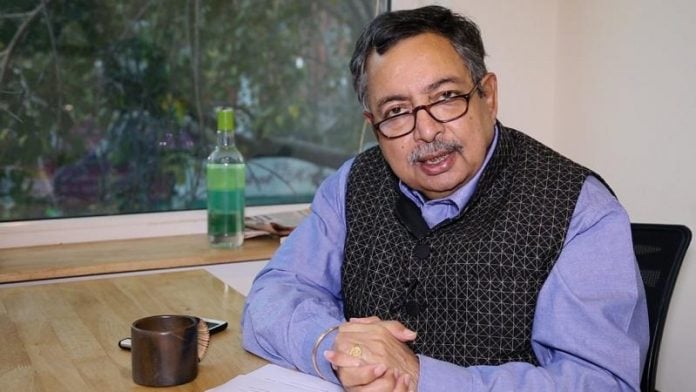Our democracy in true sense is in threat if our press is not allowed to function freely, said Senior Advocate Vikas Singh during the hearing of plea filed by veteran journalist Vinod Dua seeking quashing of FIR registered against him.
The bench of the Supreme Court comprising Justices UU Lalit and Vineet Saran today heard a plea filed by Senior Journalist Vinod Dua seeking quashing of sedition case registered against him in Himachal Pradesh.
Senior Advocate Vikas Singh appearing for Dua today submitted that the sections of the IPC invoked against Vinod Dua in the FIR are not cognizable except Section 124A of IPC (Sedition).
Singh then pointed out the delay in filing of FIR in the instant case where the show was of March 31 and FIR was filed on May 6. “There was some delay from the complainant’s side then one week delay by Police because they said they were doing preliminary inquiry” Singh added.
He further submitted that there was no requirement of mentioning the Disaster Management Act because there is nothing else that require invoking of the DM Act.

Singh submitted that Sections 124A and 505(2) of IPC are not made out and therefore FIR could not have been registered.
Singh thereafter referred to the Kedarnath case of 1962 and where the Court observed that criticism on political matters is itself not seditious.
He further submitted that “Our democracy in true sense is in threat if our press is not allowed to function freely.”
Singh thereafter Singh referred to the Supreme Court’s judgement in the case of Manzar Sayeed Khan vs Maharashtra [ 2007 (5) SCC 1] on the aspect of cognizability of Section 153A and 505(2) of IPC.
Referring to article 19 (1) (a) Singh submitted “this is affecting my fundamental right to freedom of speech and expression is being affected and we are praying for the Court to law down the law on this. In our A.19(1)(a), Press is not mentioned, it only says citizens”.
Justice Lalit however said that are number of cases where guidelines were laid down when found fit such as the Madhuri Patil guidelines, Vishaka guidelines. However the directions cannot be in the teeth of the existing statute and many times the Court had set aside such guidelines.
Read Also: AGR case: SC asks DoT to give details of dues from users of shared spectrum
The bench adjourned the matter to hear Solicitor General who could not appear before the bench since he was also appearing in another case.
-India Legal Bureau


